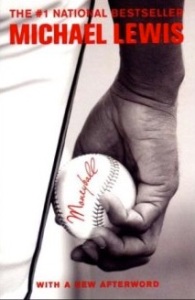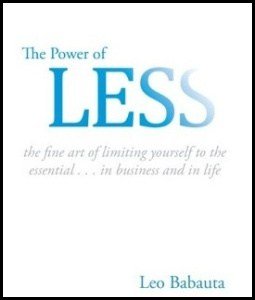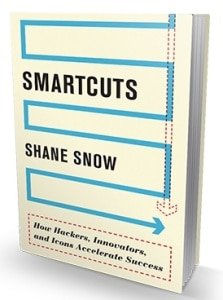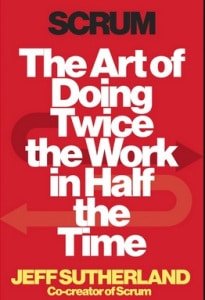Is Moneyball the greatest sports book of all time?
Or is it the greatest business book?
Between 2000 and 2005, when my Dad was winning two baseball state championships in baseball and making five tournaments trips in six years, we would have long post-game discussions as he tried to solve his teams’ problems. How to get the batter in a 2-for-23 slump on base? How to get the pitcher with no fastball to strike out most of the batters? Can you trick the opposing pitcher into a balk?
Into our discussion came Moneyball.
Maybe you’ve seen the A+ movie. The book is even better!
Moneyball shocked me, which is why I’ve read it three times and given away copies.
Primarily, what it taught me was: you can rethink everything.
Billy Beane, the General Manager of the Oakland A’s, was sick of being in last place. In the 1980s, several billionaires owned the A’s, and they poured their money into the team, and the A’s won the 1989 World Series. But soon, they grew tired of investing in a losing market, so they sold their team and left.
That meant that the A’s were suddenly a poor team. And they quickly did a cordless bungee jump, plummeting to last place.
One day, Billy Bean woke up, utterly depressed. For him, despair was normal. But this day, something different happened. He asked, “What’s my purpose in life?”
His brain replied, “Apparently, it’s to get beaten by the New York Yankees.”
“Well, I hate this,” his inner dialogue continued. “I hate my purpose in life. I don’t want to be in last place. I hate getting killed by the Yankees.”
This moment of absolute despair, of being a national joke, drove him to an extreme. He decided that he had to rethink, and not just one thing. Rethink:
Everything.
Currently, he was trying to do everything the Yankees were doing: get great hitters, pitchers, and fielders. The problem was: the Yankees had at least three times more money coming in, plus billions in the bank. They could simply buy the best players. And they did.
So, Beane realized: he needed to go bargain shopping. He needed the best hitters, pitchers, and fielders too—only they couldn’t be recognized as the best!
Decided that all of the common sense in baseball was making him lose, Beane hired Paul DePodesta, a Harvard-educated statistician who had never seen a baseball game in his life. Soon, they:
Fired fifty out of fifty scouts.
Hired hitters who couldn’t hit.
Hired underarm pitchers with no fastball.
Eliminated stolen bases.
Beane worked backwards. You need to win 90-95 games to make the playoffs, and that means you need to score about 650 runs per season. So, he built his program around that.
And because the statistician who had never seen a game said that the out is the most precious resource in baseball, he did everything he could to reduce outs. Hence, they developed the concept of “on-base percentage,” which mattered more than batting average. If you bat .250 but someone else can’t hit but somehow manages to get on base more than you do (usually by having better eyesight, and drawing more walks), they would acquire the ballplayer who can’t hit.
They also decided “looks like a ballplayer” was an illusionary category. They told the scouts not to recommend any more high school athletes because about 0 out of 50 high school athletes selected by the scouts actually went pro. When the scouts didn’t listen, Beane let them go.
Further, the scouts would reject a good catchers because he “doesn’t look like a ballplayer.” He might be too overweight—but all of his statistics were terrific. Beane and DePodesta would acquire these heavy catchers—and then say, “We’ve made a commitment to you. We would like for you to make a commitment to us, and get more fit.”
Moneyball was compulsive reading because, yes, the stories are terrific. And it shocked me because I thought—surely after 100+ years, people know everything there is to know about excellent baseball. But Beane started a revolution.
And that’s why some people also think it is the greatest business book of all time: because a book that says you can rethink everything sort of anticipates what’s happened in various industries:
Uber is disrupting the taxi business;
Airbnb is disrupting hotels and motels;
eBay disrupted garage sales;
And the list can go on. Peter Diamandis discusses many in his books, Abundance and Bold.
We live in an age of disruption. Who knows what stagnant industry or government is ripe for a complete rethink?
#
To this day, a few people still aren’t ready for Moneyball. I remember telling an acquaintance about it; he was a basketball coach with a lot of .500 seasons. I noticed he was doing everything the way every other coach was doing things. This is probably a sign that your quest to be #1 probably is going nowhere; perhaps it’s time to rethink.
He replied, “Rethinking everything works in baseball, but it can’t work in basketball.”
“Why?” I asked.
“It just doesn’t,” he said.
He coached several more years with similar .500 results.
#
Of course, the A’s never won the World Series in the Moneyball era. But they did make five playoff appearances from 2000-06. From this, I gather:
* Rethinking everything really can work.
* Rethinking everything is a lot of work!
* The old-fashioned way—in the case of baseball, that means acquiring the people who are known traditionally to be the best ballplayers, as the Yankees do—also works.
After all, the success of Uber doesn’t mean that the taxi industry just evaporated. The Empire Strikes Back, right? It still wants to exist.
#
A question I am left with: does it take a near-death experience in order to truly rethink everything?
In The Smartest Kids in the World, Amanda Ripley found that the #1 students are in South Korea (nearly destroyed by North Korea in the Korean War of 1950-53) and Finland (nearly conquered by the U.S.S.R. during the Cold War). Both countries felt they might cease to exist, and that they needed every advantage they could muster, which included having a bright population. They decided everyone must truly contribute—or they would die.
The United States, in contrast, does not face a near-death situation (as far as I know). And we are #12 in reading, #17 in science, and #26 in math, internationally. I realize people get upset when people point this out. Their emotional reaction is understandable, but counter-productive, and it is keeping poor people down. Thus, I wonder: do teams (or countries) only make major changes that actually work when they absolutely have to? In politics, we see a lot of change that doesn’t work. That’s another story.
#
A brilliant book, loaded with highly entertaining stories, Moneyball is infinitely challenging. And it fits in brilliantly with most of Michael Lewis’s work: many times, he likes to tell the story of the person (or group) who sees what absolutely no one else is seeing, and has the courage to pursue that lonely vision—to success.
#
Little Green Book is a newsletter written by Tim Wuebker. Once a week, Tim describes an astonishing book, a real game changer, and/or a riveting read. Not only are these books thrilling, sometime they save you time, save you money, and increase your peace.
No author paid to receive a review. Tim wrote this for free because he loves these books.
The greatest compliments you can give Little Green Book and Tim is to subscribe to this newsletter, and then share it with anyone whom you think would find it fun or useful.
#
Next Post: Oct. 26, 2015
The greatest compliments you can give Little Green Book and Tim is to subscribe to this newsletter, and then share it with anyone whom you think would find it fun or useful.
#
Next Post: Oct. 26, 2015
Source: Tims Old Blog






0 Comments